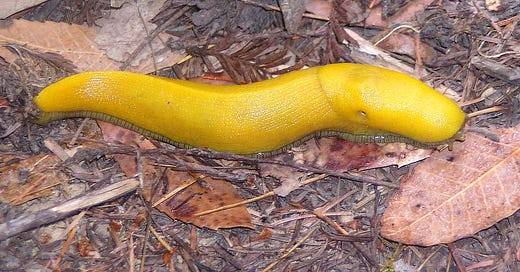Back before I started Frog Hollow, I ran a summer day camp called Summer Winds out of my parents’ barn. I basically got a bunch of kids from the suburbs to leave their townhouses and get to be kids outdoors in the summertime. Parents called my camp Dirt Camp. My campers and I ran around in the woods, did arts and crafts, and spent a lot of time building forts (and their accompanying civilizations) in the scrappy woodlot on the edge of the fields. We played kick-the-can and Giants, Wizards and Elves. We told stories inside an enormous hollow cedar stump. We ate popsicles. We raced slugs.
There were various themes, including one called Medieval Merrymakers where we did archery, made a medieval feast, and wrote ballads. I will always remember one skin-kneed and squirrely little boy reciting what felt like the entire plot of Avatar to a vaguely Gregorian tune of his own invention. Ballads: how to get nine-year-old boys to sing alone in front of adults.
Ballads, the pop song of the last millennium
Ballads are basically songs that tell a story, sometimes with a refrain, usually in verses. They tend to be about terrible things like love and death, usually both. They’ve been a mainstay of pop culture for hundreds of years, from bards in rush-strewn halls, to the widely printed broadside ballads of the 18th and 19th century, to pop radio today. So they could be a way of engaging with history, or a bridge for a pop culture-focused kid into poetry. I often pair ballad writing with singing ballads, and with talking about the history of English as a language. Popular singing ballads I’ve shared include “Barbara Allen”, “The Wind and Rain,” “The Golden Vanity,” and the “Tennessee Stud.” Poetic ballads that work well for kids include “La Belle Dame Sans Merci” by John Keats and “Anabel Lee” by Edgar Allen Poe. Contemporary pop ballads would be really fun too.
We learn some ballads, then try our hands at writing poems that tell an epic story, possibly with a tune, possibly with a refrain, definitely with drama. I let kids retell stories they know, tell true stories, or make up stories, or even entire pantheons.
A ballad for every occasion
When my daughter Alice was a baby and cried in the car, I’d sing her the Ballad of Alice, making up desperate, unrhymed verses as I went, returning when I needed to the refrain of Once there was a girl named Alice. Alice was a very little girl:
Once there was a girl named Alice.
Alice was a very little girl.
She rode in the car with her mom and she cried
Because she didn’t like the car.
Will that ballad be sung in 700 years? Nope. But it got us home from the grocery store. An epic feat indeed.




